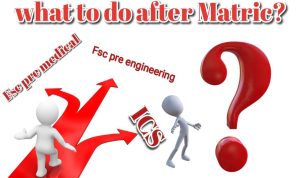Transitioning from Matric (10th grade) to FSc (Faculty of Science, equivalent to 11th and 12th grades) is a significant academic step for students in many countries, particularly in Pakistan. The common question that arises is whether FSc is more difficult than Matric. The answer is multifaceted, involving changes in curriculum complexity, study habits, and personal adaptation to higher education demands.
Subjects Complexity:
One of the primary reasons students find FSc more challenging is the increased depth and breadth of the curriculum. In Matric, the focus is largely on foundational concepts across various subjects. However, in FSc, especially in pre-medical or pre-engineering streams, the subjects delve much deeper into specific areas of science.
- Pre-Medical: Students face advanced topics in Biology, Chemistry, and Physics. The biological sciences, in particular, require memorization of intricate details about human anatomy, plant biology, and microbiology.
- Pre-Engineering: The emphasis is on Mathematics, Physics, and Chemistry, where concepts become significantly more abstract and require strong analytical skills and problem-solving abilities.
Study Habits and Time Management:
The leap from Matric to FSc also demands a significant change in study habits. While Matric may involve more straightforward learning and rote memorization, FSc necessitates a more disciplined and consistent study approach.
- Increased Workload: The volume of work and the complexity of assignments increase. Students must dedicate more hours to study and understand the material thoroughly.
- Self-Study: Unlike Matric, where teachers guide students closely, FSc expects students to engage in more self-study and independent learning. This shift requires better time management and self-discipline.
Examination Patterns:
The examination pattern in FSc is generally more rigorous compared to Matric. The exams are designed to test not only memory but also the understanding and application of concepts.
- Analytical Thinking: FSc exams often include problem-solving questions that require a deep understanding of the subject matter. This contrasts with the relatively straightforward questions in Matric exams.
- Practical Knowledge: Many subjects in FSc include practical exams, where students must perform experiments and demonstrate their understanding of scientific methods and principles.
Personal Adaptation:
Personal adaptation plays a critical role in how students perceive the difficulty of FSc compared to Matric. The transition period can be stressful as students adjust to new academic and social environments.
- Pressure and Expectations: There is often increased pressure to perform well in FSc, as it is a stepping stone to higher education and professional careers. This pressure can affect students’ perception of difficulty.
- Maturity and Coping Mechanisms: As students mature, their ability to cope with academic stress improves. However, the initial transition period can be challenging and may affect their performance and perception of the coursework.
Conclusion:
In conclusion, FSc is generally considered more difficult than Matric due to the increased complexity of the curriculum, the necessity for improved study habits, more rigorous examination patterns, and the personal adaptation required. However, this does not mean that it is insurmountable. With proper planning, dedication, and the right support systems, students can successfully navigate the challenges of FSc and excel in their academic pursuits.



